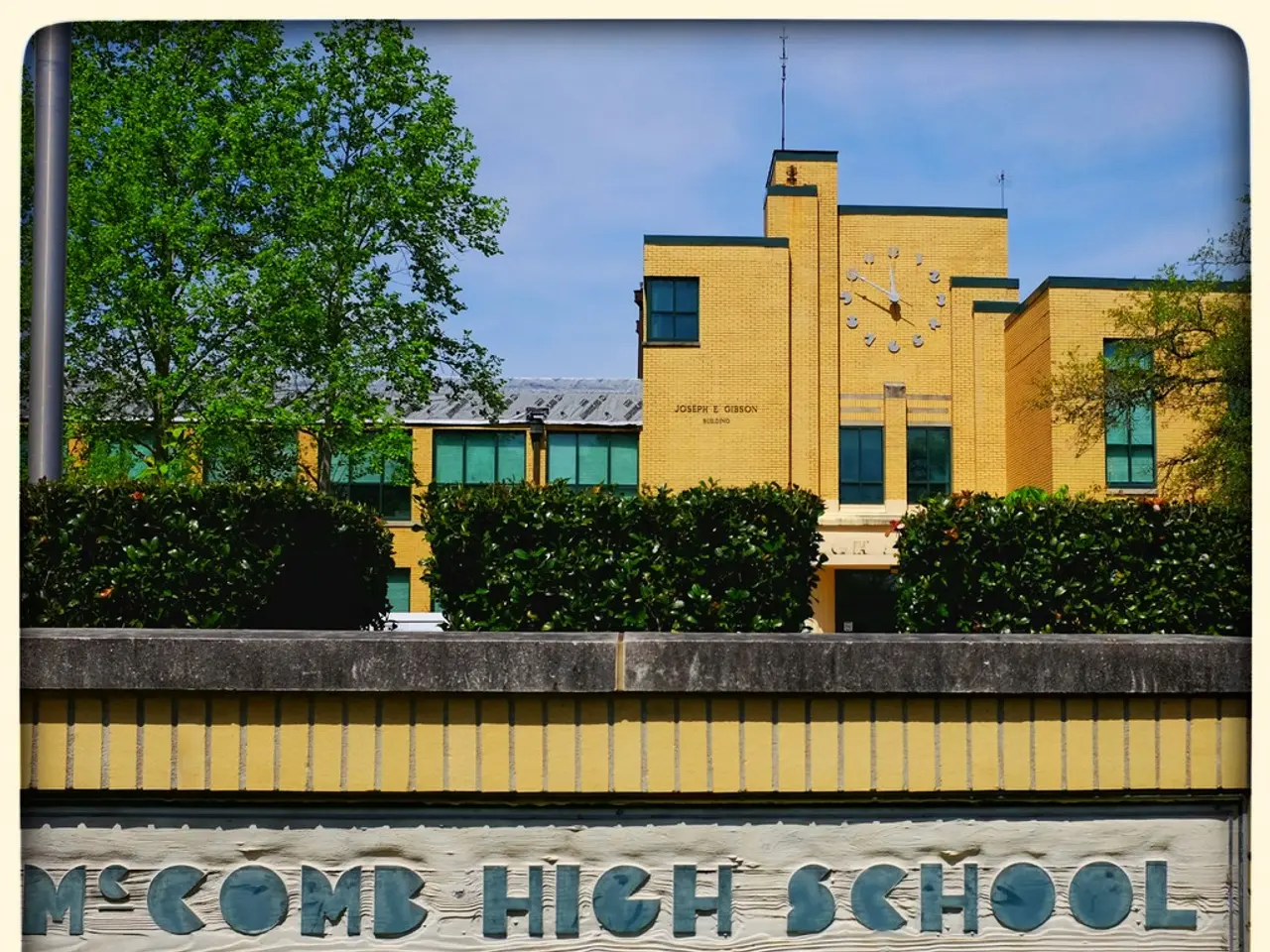Students transformed into inventors through InvenTeams initiative
The Lemelson-MIT InvenTeam Grant Initiative has been inspiring high school students across the United States for the past 20 years, providing them with a unique opportunity to engage in hands-on, STEM-based invention projects aimed at solving real-world community problems.
Since its inception, the program has awarded grants to a total of 19 high school teams, resulting in 19 U.S. patents [1]. The teams, once selected, are given a financial grant of around $7,500 to fund their invention projects [2]. This year, a team from Ygnacio Valley High School was among the recipients [3].
The process begins with the students identifying meaningful challenges within their communities that they wish to address with an invention. Over the next 12 months, they research, design, prototype, and test their inventions, incorporating STEM principles [1][2]. Throughout this process, students receive guidance from educators, makers, and sometimes MIT experts, helping them navigate from initial concept through engineering challenges to a final invention [2].
The annual Eurekafest event at MIT's Stata Center takes place in June, featuring live presentations from the teams [4]. This year's Eurekafest showcased presentations from teams that developed ways to detect contamination in drinking water, help visually impaired people communicate, treat groundwater for use in agriculture, and more [5].
Following the program's capstone event at MIT, the students are given the opportunity to share their work with lawmakers. For instance, the YVHS team's exoskeleton hand invention earned notable recognition and was presented at the California State Capitol [1][2].
The initiative not only promotes innovation but also empowers students to apply science and technology to real-world problems, enhancing their problem-solving, collaboration, and technical skills [2][5]. It also encourages youth to consider invention as a means to create social value and fosters an inventive mindset that can influence their future careers [2][5].
The Lemelson-MIT program has also created a membership program, called Partners in Invention Education, to help many more schools adopt invention education. The curriculum stretches from kindergarten all the way to the first two years of college [6].
Throughout the years, the InvenTeams program has transformed the students' perceptions of themselves and what they're capable of. For example, in 2016, a team of students on the autism spectrum developed a treadmill device and app to detect lameness in cows on dairy farms [7]. The students from Calistoga were selected as finalists in the student SXSW Innovation Awards [8].
In conclusion, the Lemelson-MIT InvenTeams program guides high school students through a comprehensive invention development process addressing community issues while providing financial resources and expert mentorship, thus deeply impacting their STEM education and inventive capacities.
- The Lemelson-MIT InvenTeam Grant Initiative, running for 20 years, offers high school students an opportunity to delve into hands-on, STEM-based invention projects, addressing real-world community problems.
- Over two decades, the program has awarded grants to 19 high school teams, resulting in 19 U.S. patents.
- The teams, once selected, are usually provided a financial grant of around $7,500 to fund their invention projects.
- This year, a team from Ygnacio Valley High School became one of the recipients of the grant.
- In the 12-month project, students research, design, prototype, and test their inventions, incorporating STEM principles.
- Throughout the process, students receive guidance from educators, makers, and sometimes MIT experts, helping them navigate from initial concept to final invention.
- The annual Eurekafest event at MIT's Stata Center features live presentations from the teams, showcasing their inventions.
- The teams' inventions often address various community challenges, such as detecting contamination in drinking water, helping visually impaired people communicate, and treating groundwater for agricultural use.
- By participating in the Lemelson-MIT program, students not only learn valuable problem-solving, collaboration, and technical skills, but also cultivate an inventive mindset that potentially influences their future careers.




